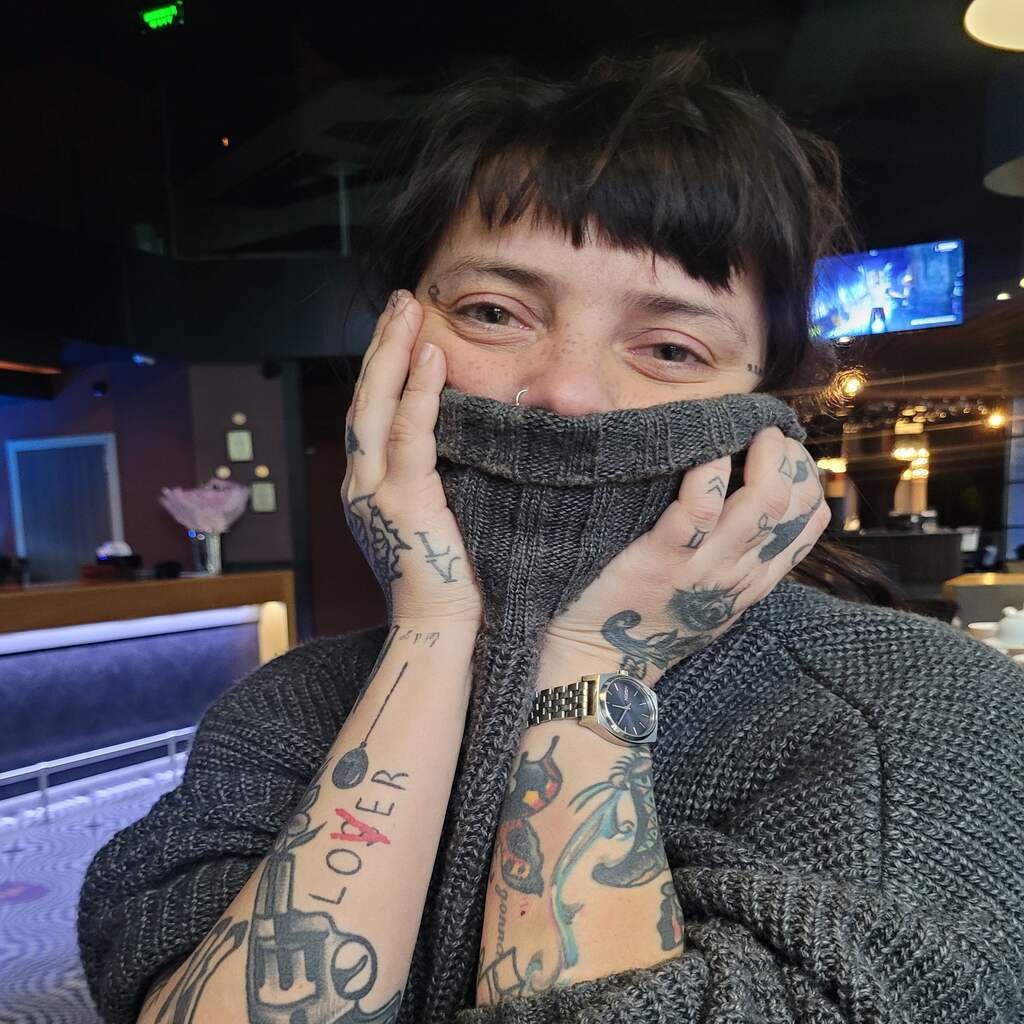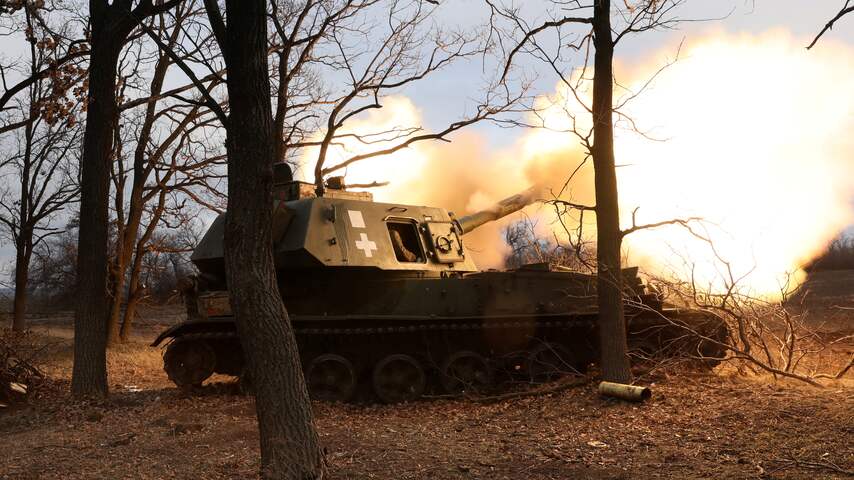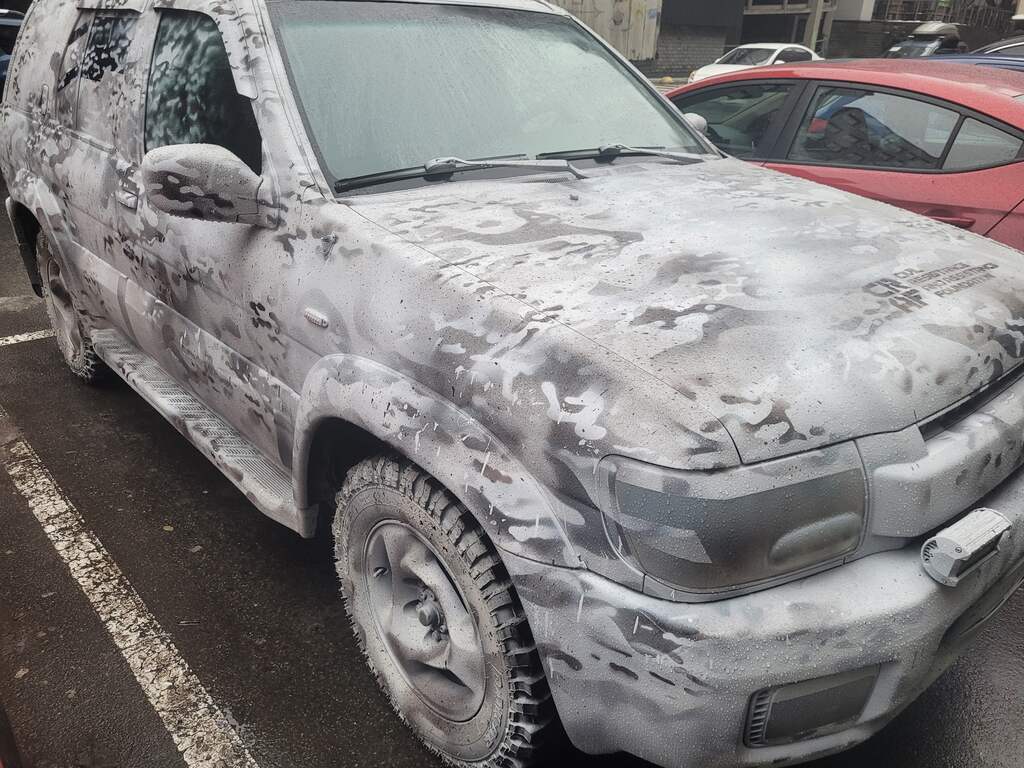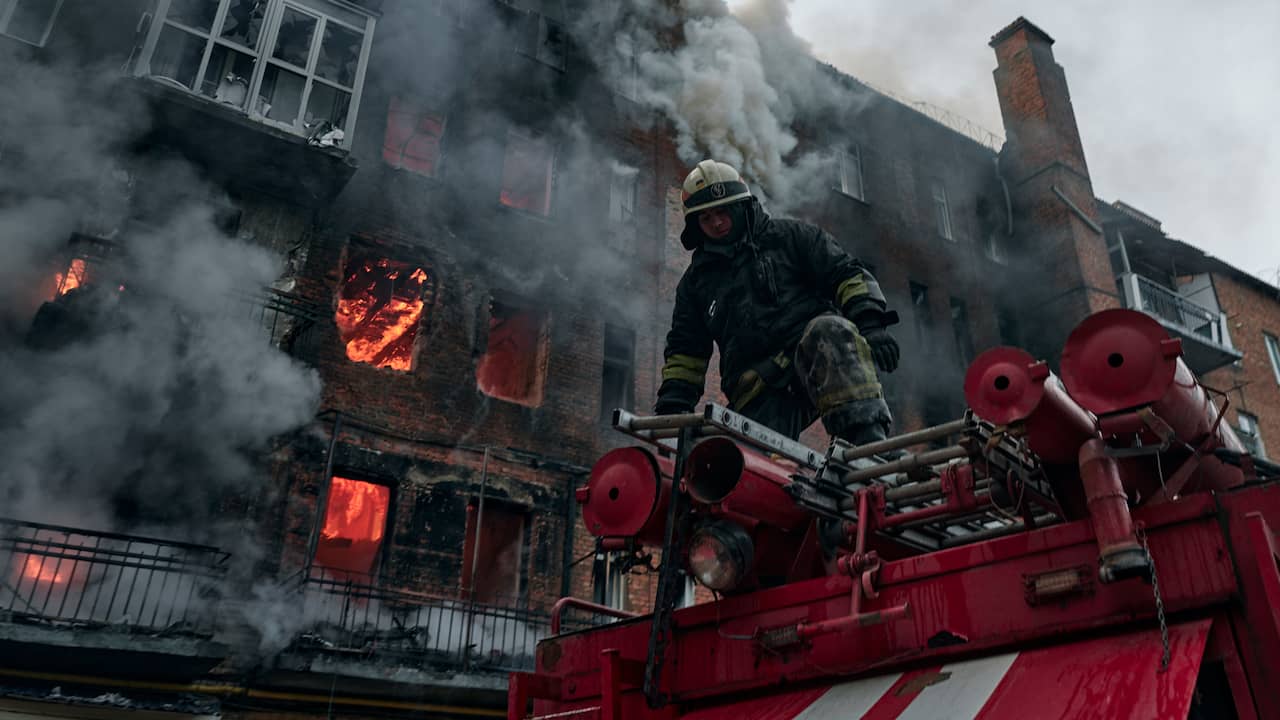War journalist Hans Jaap Melissen tells the story of the people behind the war in Ukraine for NU.nl. This time the story of military Yalta, who experienced the fierce fighting around eastern Bakhmut up close.
He sits down one table in the restaurant, but turns away when he hears the word Bakhmut. “You really shouldn’t go there. Bahmut is hell. I just came from there.”
The 38-year-old ‘Yalta’ has been allowed to leave her unit for a while and is in Kiev recovering. But it clearly hasn’t happened yet. She looks utterly exhausted and cries during her first few sentences.
What is also striking are the numerous tattoos on the arms, hands and neck. “72 I have, even one on my tongue.” She holds it out and a heart appears.
Yalta is her military name, from the Crimean city where she was born. She would like to talk about the fighting in Bakhmut, but she is in fits and starts. “We are bombarded there continuously, really continuously. Day and night.”
Bakhmut has been under Russian fire for months
Bakhmut, in the eastern Donetsk Basin region, has been in a state of attrition for months. It’s old-fashioned trench warfare, in which neither side gains ground. Meanwhile, according to Ukrainian President Volodymyr Zelensky, almost nothing is left of the city.
Yalta also sees this. And also that there are many dead on the Ukrainian side. “I’ve lost a lot of connections. And I keep getting apps like, ‘Now so-and-so is dead.’”
But when asked how many people died in her unit, she shuts down. And shoulders shaking, she buries her face in her hands again.

Rescued from her father’s military past
Yalta reported to the army on February 24, the day the Russian invasion began. He actually worked as a fashion designer, but he has known the military since childhood. “My father was a Soviet Army pilot.”
The latter fact once again saved her when she was arrested in 2014 near (Russian-occupied) Crimea by Berkut special policemen who had defected to the Russians. “They took their penises out of their pants and stood around me masturbating and threatening to rape me.” They also threw her to the ground, after which one of them emptied his weapon into the ground near her head.
But there was one man with whom she could clarify that her father was a Black Tulip pilot. That was a military plane bringing home boxes of Soviet soldiers who died during the Russian occupation of Afghanistan in the 1980s.
Yalta was arrested on March 9, 2014, the date tattooed under her left temple. She says that she has now killed eleven Russian soldiers. “The first one was in a ditch in a spot that had already been checked. He looked dead, but he wasn’t; he had a cigarette still lit in his mouth. I shot him and threw up right away.”

Back to the front
In a few days, Yalta will be back at the front, now wearing the winter camouflage on his car: mottled white. “The conditions at the front are very difficult”, he reiterated. “It’s getting colder and sometimes we wear incontinence pads so we can stay in one place as long as possible.”
On the table he sketches what the front looks like with fries and a napkin. The chips are the soldiers. They are located in an arc around a napkin, which represents the underground place where they can disappear if their location is hit by heavy fire.
Yalta is willing to die for Ukraine. “If you love your country that much, then you should. I actually fight for my friends’ children.” However, she does not rule out having children by her. “When the war is over, I want to be a mother,” she says, a twinkle in her dull eyes.



